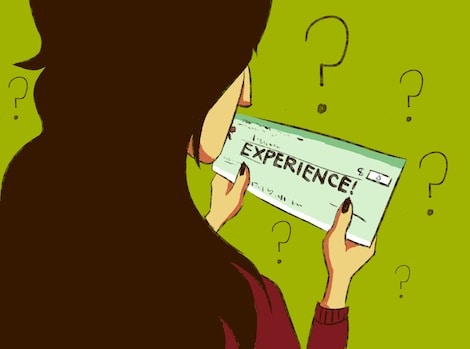Employment prospects for students in the social sciences are slim. Taking an unpaid internship is one of the ways in which students try to gain experience and make crucial connections.
The number of students interested in pursuing such opportunities means that some social science departments have become deeply invested in helping students engage with one another, faculty members, and alumni.
In fact, staying up to date and engaging with internships has become so central to students that the Department of Political Science hires a graduate student specifically to disseminate information about internship opportunities.
Unpaid internships advertised
Unpaid internships feature prominently on the Department of Political Science’s website, as well as on a working database of internship opportunities that was emailed to interested political science students. Of the 112 internship positions listed, 36 are paid in some capacity; the rest are unpaid, including five where the student is required to pay.
In one case, students are expected to incur costs up to $3,450.
Of the 36 paid internships, just three are based in or around Toronto.
Emily Tsui, president of the Association of Political Science Students (APSS), says that, though she finds the list helpful, she is unimpressed with companies that choose not to pay interns when the funding to do so is available. “The gap between those who can afford to take unpaid internships and those who need to take a paid job must be addressed,” Tsui says.
As part of a recent change to their mandate, the APSS has ramped up efforts to provide some alternatives to the unpaid internship route for those students who can’t afford to travel, and incur costs, to gain research and field experience. Initiatives focused on networking — such as the Senior and Junior Mentorship programs — have become a priority, both to ease job searches and to create more of a community within the faculty of political science.
Making connections
Jamie Levin, a doctoral candidate in political science tasked with providing academic counselling for students, says that, when it comes to work in social science fields, undergraduate students have fewer options. “The nature of U of T being such a primarily research institution, it falls often to grad students,” says Levin.
He finds that students often need to have connections and leverage them to get valuable experience.
Clare Gilderdale, alumni engagement liaison with the faculty of Arts & Science, describes a shift towards preparing students for a world where networking and forming connections is the way forward. “Especially at the University of Toronto, and especially in social sciences, networking is a necessity, both with other students and with alumni,” Gilderdale says.
Junior Mentorship
“Junior Mentorship cracks are often left when unpaid internships are not an option, and where contacts are necessary to make any headway,” Tsui says.
She believes the new Junior Mentorship program is a step in that direction.
Based on the department’s Senior Mentorship program, the mentorships are organized and led by the APSS in an effort to connect students to one another and build networking into student interaction.
Ilya Maslyanskyy, a third-year political science student who has eight mentees in the volunteer program, says it’s a matter of making the university feel smaller and a bit friendlier for younger students. According to Gilderdale, acknowledging the limited options available has been a big step in improving the kind of services offered at U of T, such as the Backpack 2 Briefcase program, which aims to connect students within the Faculty of Arts & Science with alumni.
“We’re helping students to know that it’s OK if you don’t know where you’re going, you will get there,” Gilderdale says.
The initiatives are all relatively recent additions to the Faculty of Arts & Science, and to the Department of Political Science specifically, but they are just one part of a suite of attempts to step beyond the limits imposed by a field that places great value on personal connections and unpaid experience.
To what extent the university can make students more job-ready and less worried for their futures is primarily a question of commitment and input. “We are always looking to do something more,” Tsui says.


